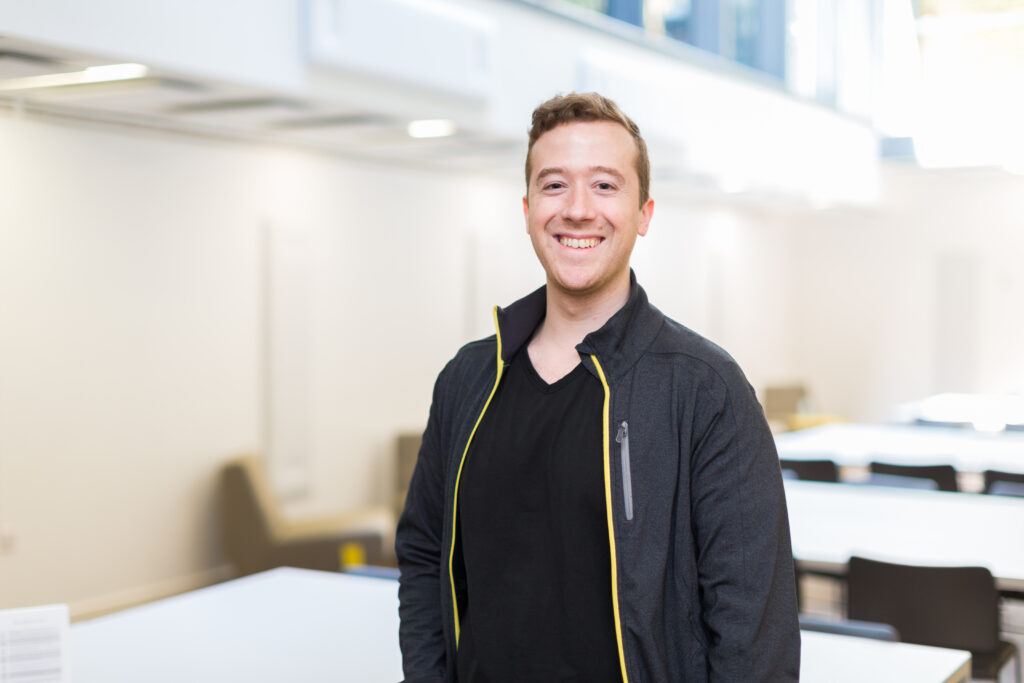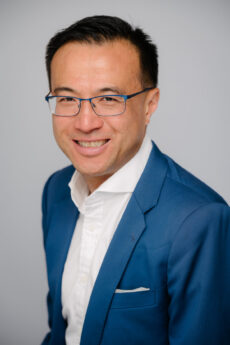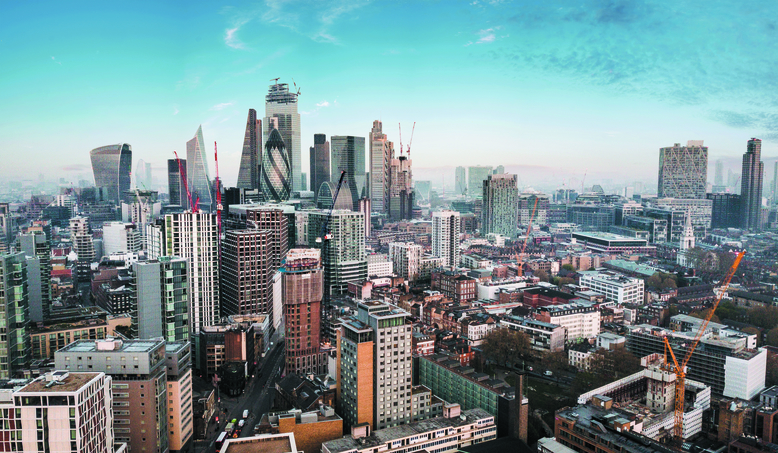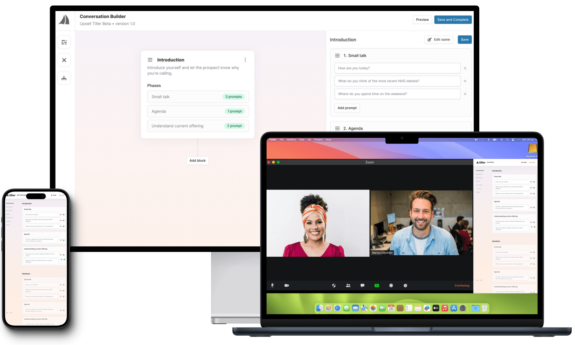When it comes to career journeys, Hult MBA Class of 2015 graduate Duncan Thompson is an outstanding example of the many directions curiosity, passion, and an entrepreneurial spirit can take you.
We were excited for the opportunity to interview Duncan to find out how he went from a theater student in Canada to an international entrepreneur, having founded a wine tourism company, worked in health and wellness startups in London, and, most recently, secured funding to build and launch Tiller, a AI-driven platform to optimize business conversations.
Having successfully made the “triple-jump” of changing country, industry, and function, Duncan’s inspiring story makes him the ideal candidate to feature as part of our 12 over 12 series, celebrating the career success of 12 Hult alumni over 12 months. From the spark that first ignited his interest in business to his passion for technology and insight on AI, find out how Duncan’s path took him over the Atlantic, into London’s buzzing tech scene, and onwards as Tiller’s CPO.


Hult: As an undergraduate in Canada, you studied theater and film. At what point did your interests shift to business?
Duncan: During my last year of university, I got involved in the student government. I was elected as Chief Financial Officer for the Student Union, where we managed a budget of about $13 million Canadian Dollars to provide services for the students. It was at that point where I realized that what I really was interested in was business.
H: That’s quite a jump from theater!
D: There was a shift for me when I realized that acting, what I originally wanted to go into, was a lot about performing someone else’s words—your interpretation of somebody else’s work. At least that’s how it felt to me.
What I did for the student body was entirely my own work, and it helped me recognize what I could do for people and what business could do for people. It was a lot more exciting to be directly responsible for the output. That’s what took me in that direction.
“What I did for the student body was entirely my own work, and it helped me recognize what I could do for people and what business could do for people.”
H: After finishing undergrad, you started your first business. Can you tell us a bit about that?
D: I was entrepreneurial back then! I started a small online business, selling fountain pens and stationary. While I was living in Toronto, my mother, brother, and I also founded a wine tourism company together.
There’s a whole wine region in Niagara and we were taking people from Toronto and doing day trips down there. Right at the beginning, it was myself and my brother who were doing the actual tours. I was also responsible for all the digital work, like online ticketing and the websites. We eventually built up an international client base of people who were traveling in from all over the world. We had groups from Sweden, from South America, and from the US a lot as well.
It was kind of an unfilled niche at the time—people didn’t generally know about this region, and that’s what was really cool. We’d have people join who were visiting Toronto anyway, or people who were really wine connoisseurs, and they got to explore something that was genuinely new to them.
H: What made you decide to pursue your MBA at Hult?
D: First off, it was the international exposure. I really wanted to get to meet people from different parts of the world who have different experiences. That’s one thing that stood out about Hult.
I chose to study in London, but what I really liked about Hult was the rotation part of it. I didn’t change campus, but I knew that other people would rotate, and so I had the opportunity to meet people from everywhere.


H: Tell us about your experience at Hult. Any particularly memorable moments?
D: What I found really exciting was how a lot of things were done in a way that was quite practical. Our professors tried to make sure you had experience or at least would understand what would really happen in the real world.
My cohort was one of the first to do the Hult Impact Challenge, and I was the London Campus speaker in Davos. What I said at the end of my speech was that I came into my MBA from the perspective that I didn’t really believe I was that clever. I didn’t really think I was that smart. But there was a professor, Terence Tse, who taught finance. I always felt that I struggled with mathematics, but I remember coming out of those classes having built these incredible financial models and just realizing how much smarter I was than I thought.
To go into something where you’ve told yourself you can’t do it and you believe you can’t, and to be shown that’s completely not true—in fact, you’re quite good at it—that’s where the whole growth mindset that Hult asks you to get into comes in. That’s really stuck with me.
H: Do you feel your theater background gives you an edge in business when it comes to speaking and presenting?
D: Yes, absolutely. You need to be able to stand in front of people in every business context and convince them that what you’re saying is true and that it matters. You have to get them to listen to you regardless of the content, and so much of it is how you deliver things. You have to slow down, breathe, make sure your points are hit. If you were to ask me what’s missing from business education, that is it. Students need a class on “How to Act.”
H: After finishing your MBA, did you always plan to stay in London?
D: I really wanted to move into tech after my MBA. Before leaving Canada, along with the wine tours and stationery, I was working in brand marketing for FMCG, particularly in grocery and food brands, but I just wasn’t interested in that space.
I’ve always been really, really interested in technology—doing things like building my own computers, 3D printers, drones. It’s all something that I’ve been passionate about, but had never been able to make it my career. Part of why I wanted to do an MBA was to be able to get a broad enough knowledge set to bring me into a new career in technology.


So, my intention was to switch careers, but I didn’t have the specific goal of doing it in London. However, I found that London and the UK job market seemed to be more interested in a person in a general sense. In Canada, I found you needed to have a degree in a specific area to be considered. Because I didn’t have, for example, a computer science degree or even a business degree when I was over there, it was difficult to get into the market. Whereas London seems much more receptive to evaluating the individual rather than evaluating the credentials beforehand.
H: Tell us about your first role in London.
D: I took an internship with a startup. In fact, I’ve stayed in the startup business area ever since my MBA!
I started with a company called Doctify for six months as their customer service intern. Doctify is a review platform, like TrustPilot or TripAdvisor but for healthcare. I made really good friends with a couple of the developers there and started learning how to code, which was a path I continued on my own after the internship was up.
H: Where did that path take you?
D: Doctify offered me a role after my internship, but one of the people I graduated from Hult with was launching his own startup called Little Concert. They needed someone to come in and lead marketing. So I went over there, and it turned out the product itself wasn’t quite ready yet, so they asked me if I could take over the role of product management.
And I fell in love with that! The technical side of it but also the intersection of business, design, marketing, development—it was just absolutely perfect for my personality and my interests. And so I stayed there for two years doing that.
From there, I returned to Doctify to take over a product role and ultimately become their Director of Product. I went from an intern to one of their leadership team pretty quickly, and I stayed with them for a great five years.
H: What was next for you?
D: The only reason I moved on from Doctify was because I wanted to go into the AI space. I was really keen to make use of it and find more exciting and interesting ways that AI can help people.
I went off looking for some more work where I could do that, but stay in the health and wellness space, so I took on another product role with a startup called Walking on Earth. Essentially, we were building a virtual wellness coach. The platform would evaluate you holistically. We integrated biometrics and other services like chat and HR systems to try and get a full picture of an individual at work and then provide feedback and potential interventions.
For example, based on your calendar we could see you have an extremely busy day in meetings, and we noticed that your heart rate variability is increasing. Perhaps this indicates you need to be doing some wellness exercises. And then we’d provide the services, like live sessions with breathing coaches, or yoga, or relaxation. It was quite cool.
H: How did the idea of Tiller come about?
D: Tiller’s co-founder, Alastair, was the Chief Commercial Officer at Doctify. We worked together for five years, and, after I left Doctify, we’d meet up for lunch and talk about ideas.
We were both in the startup space, and what we saw when businesses grow was this constant struggle of getting sales teams to perform at a consistently high level. Every startup we were at, we were watching them try to figure out what to say, why conversations went wrong, and how to get the people on the team who were the top performers to spread that knowledge to the rest of the team.
Often you have your top 20% of people doing 80% of your sales and then 80% doing the remaining 20%. There’s a lot of turnover in that 80% of people because it’s not a fulfilling job. It’s such a huge hit to your confidence if every time you pick up the phone people just say, “No, don’t call me.” And so Alastair and I talked through this idea that we had around AI conversation guidance. We realized we might be able to create a solution that helps people deal with those calls and transfer knowledge between the best performers and the rest of the team.
Everyone wants to feel fulfilled at work. You want to do well, and if we can create a tool to help you get there, why wouldn’t we? And on top of that, we knew we could sell this idea to businesses because it will increase their close rate. So it seemed like a really good use of technology.
We ended up meeting with a couple of investors, and got some very positive feedback about the space and the market that existed. It was exciting, and it accelerated pretty quickly from there.
“Everyone wants to feel fulfilled at work, and if we can create a tool to help you get there, why wouldn’t we?”
H: Talk us through how the Tiller AI platform works.
D: We call it the conversation guidance platform, and there are a couple of pieces to it. One piece, the note taker, records the call and will do a transcription and a summary at the end.
The other piece is the prompter. It’s a conversation builder, which lets you create the script for whatever type of conversations you’re having. It can be structured for anything, not just sales. We’ve had great success in recruiting actually where recruiters are expected to have very complicated conversations with a lot of different people working in industries they might not know a lot about. It’s also good for HR teams where they need to make sure one-to-ones are done in a way that is compliant and other conversations are correctly handled.
The prompter sits with you in calls and it’s got your script. It has all the information you need and it’s listening in real time, so when you hear an objection or somebody asks a question you don’t know the answer to, the technology can bring up the answers or show you how that objection is handled by the best person on the team.


What we were noticing in early user testing is that people weren’t as flustered because they aren’t worried about those things coming up. And that just comes through every time that you’re speaking: you’re less nervous because you feel confident that you always have the answer you need.
Because it’s listening in real time, it can also give you advice like, “Duncan, you’re talking too fast, slow down.” Or, “Duncan, you’ve talked too much. Ask a question instead of just pitching.”
The ROI that we’re hoping to prove to our customers is not just about increasing close rates, but decreasing the time it takes a new person to come into the business and become productive. I think those two things together represent a big financial benefit to a company. But it’s also beneficial from an employee perspective: being effective at my job faster leads on my career path faster, and I feel better at work.
H: That’s a fantastic use of artificial intelligence. Where do you see the future of AI headed?
D: As with any technology, I do think we need to find a place of regulation. Cars, computers, electricity itself has regulation around how it can be used and implemented safely. Technologies themselves aren’t inherently evil, it’s their application, and I think AI is one of those things.
I don’t see AI as a thing that’s meant to replace people. I see it as a thing that’s meant to enhance them. The chess grandmaster Garry Kasparov lost to the AI computer Deep Blue and everyone went on about how the computers are taking over. But what doesn’t really get reported is that they found as soon as you put a chess master with an AI, that combination is truly unbeatable.
That’s because there is the intuition that a human has about what the other person might or might not do. And of course, there is the ability of AI to compute any possible number of permutations instantly. I see that combination being the most powerful thing.
“There is the intuition that a human has and the ability of AI to compute any possible number of permutations instantly. I see that combination being the most powerful thing.”
Hult: Congratulations on your inspiring career journey so far, Duncan, and all the best for the future with Tiller and beyond!


